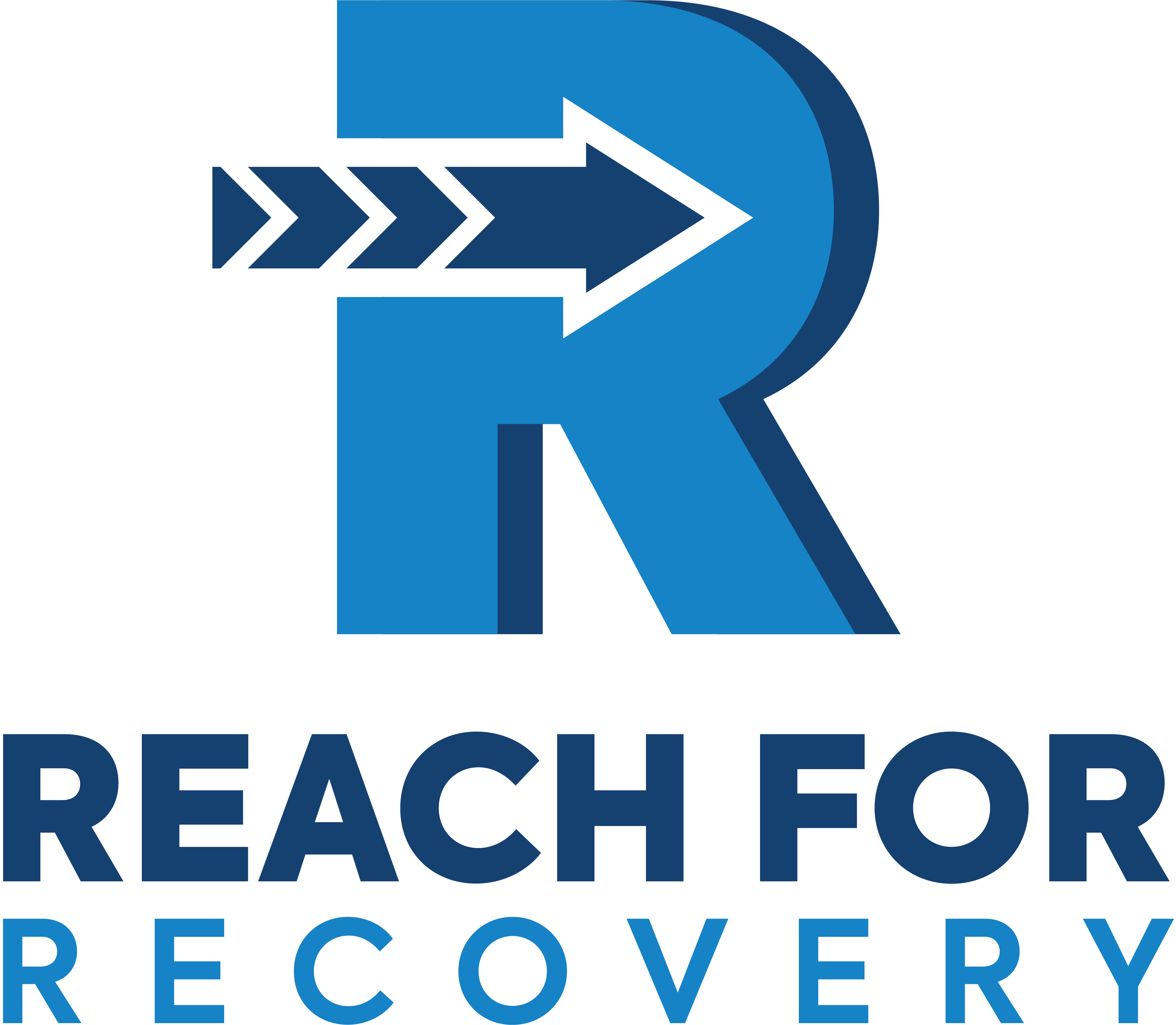2023 | Reach For Recovery

The 2023 Reach For Recovery Conference was held at the Louisville Marriott East, bringing together recovery professionals from Kentucky and beyond. Check out the conference information, speaker bios, and presentations!
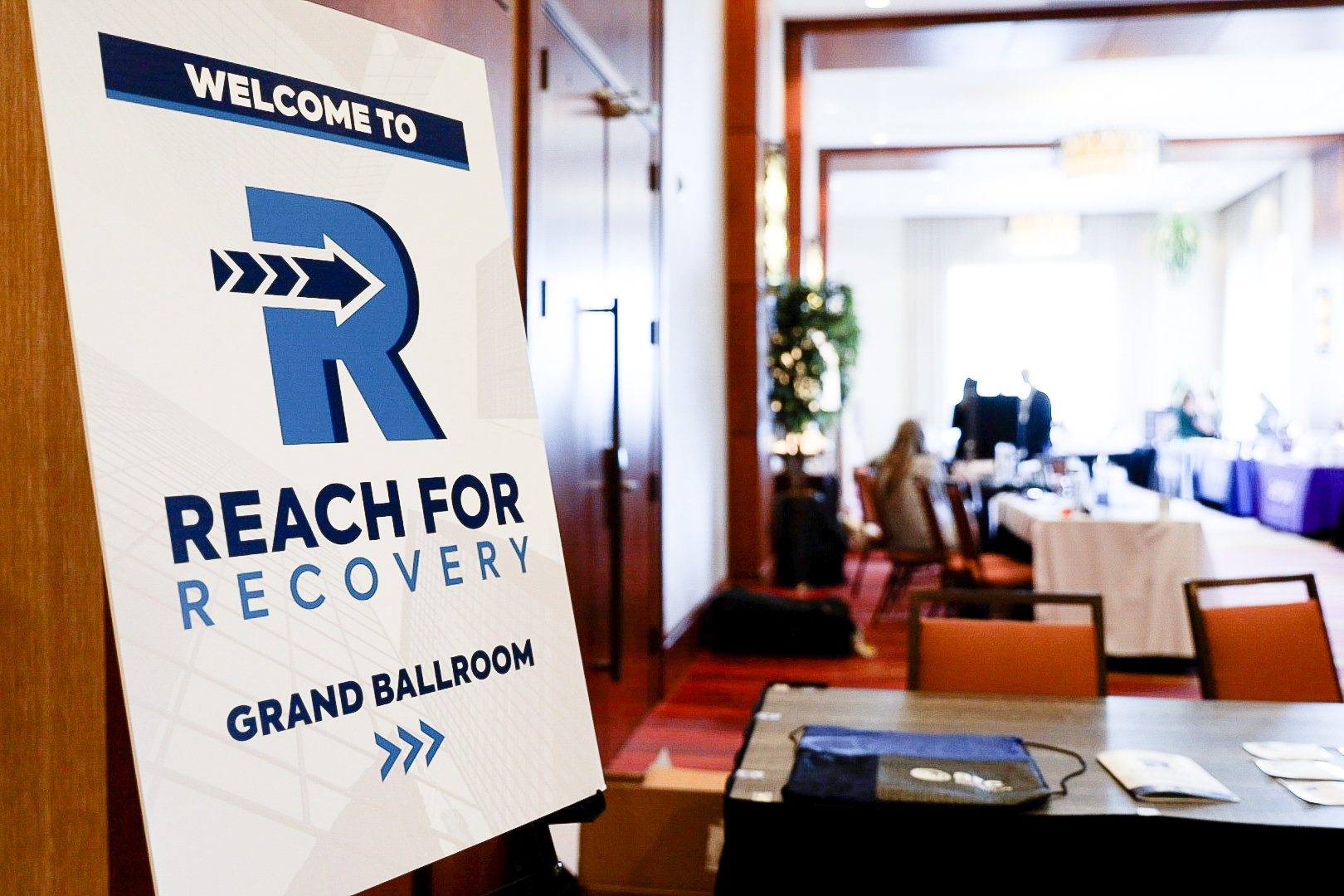

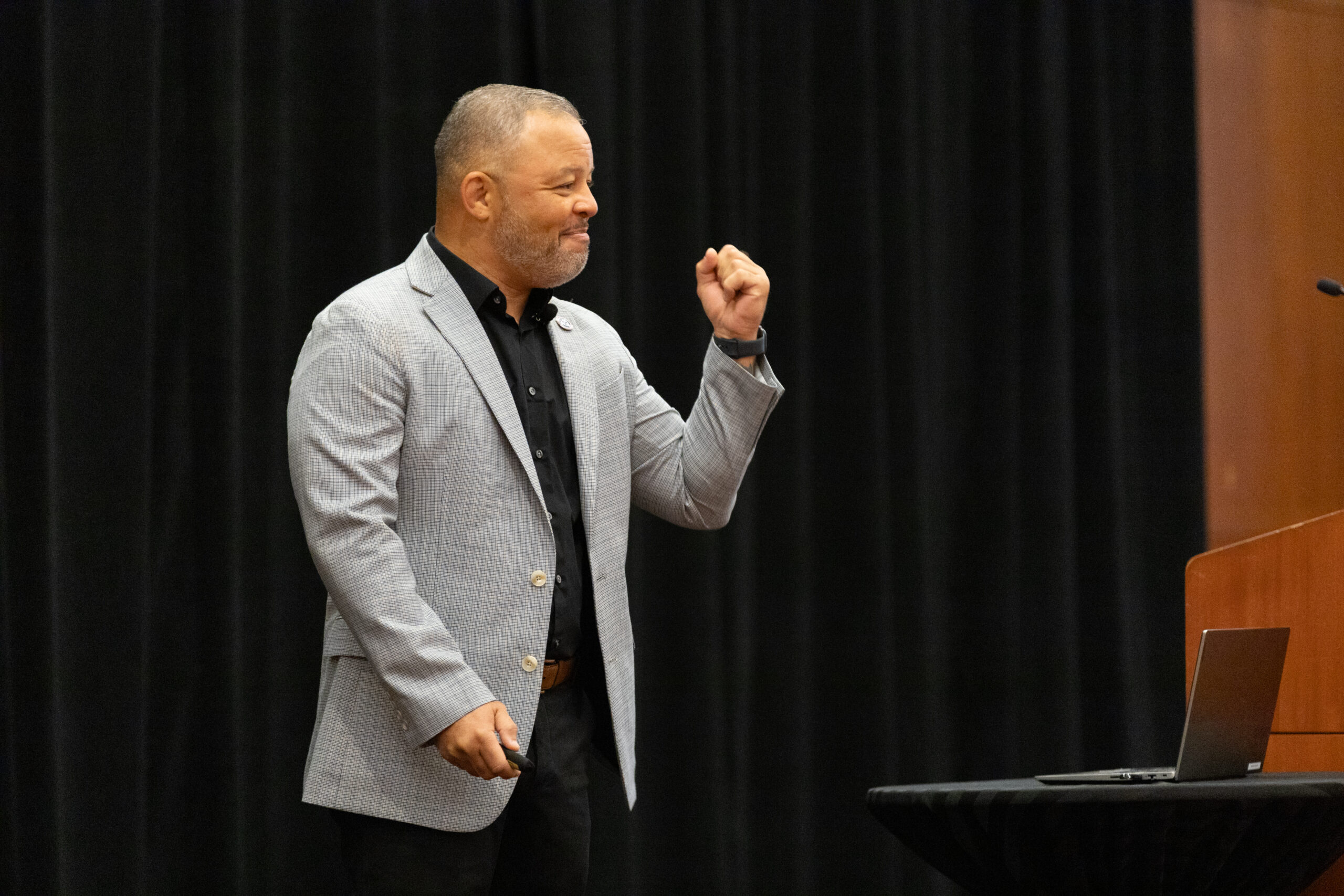
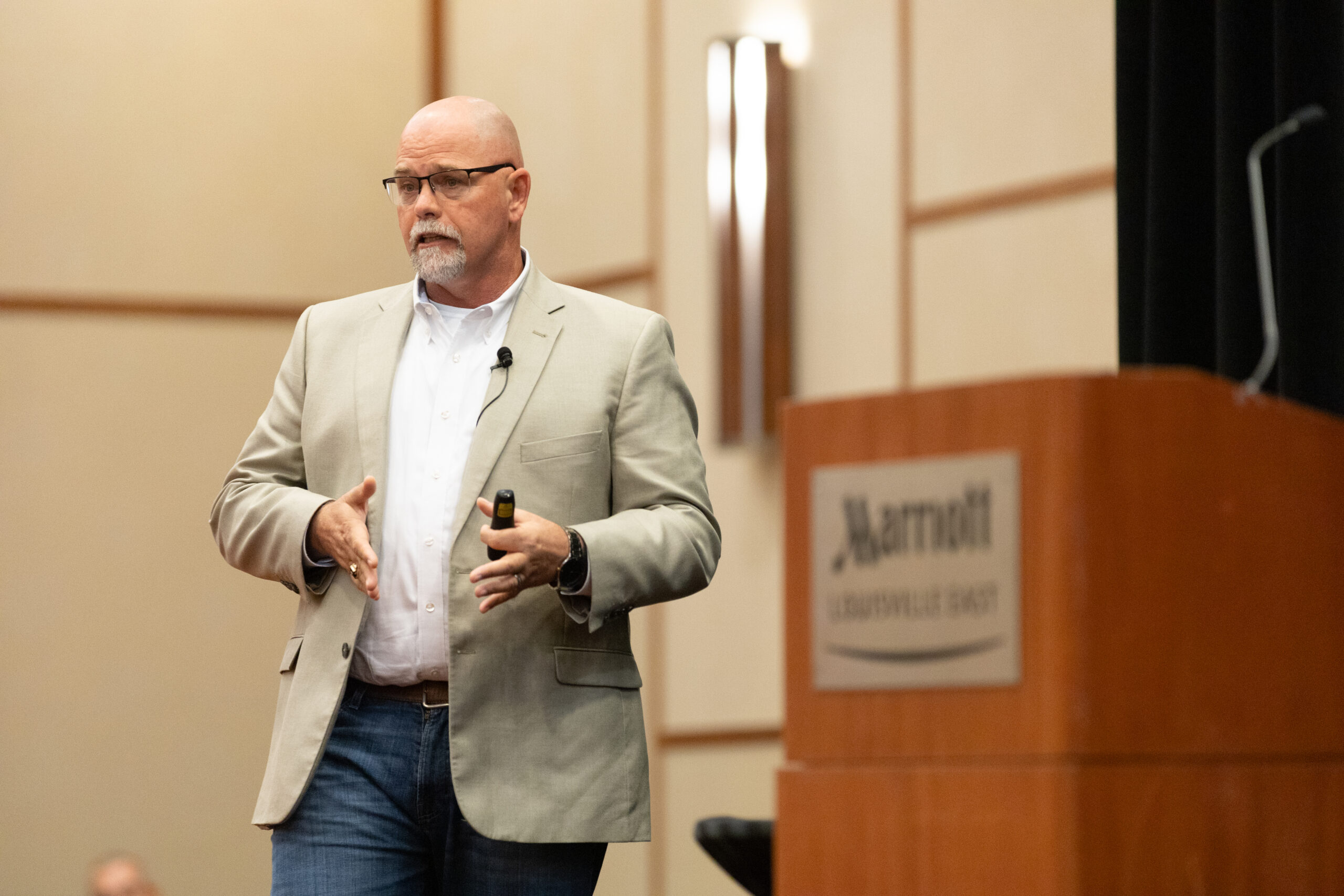
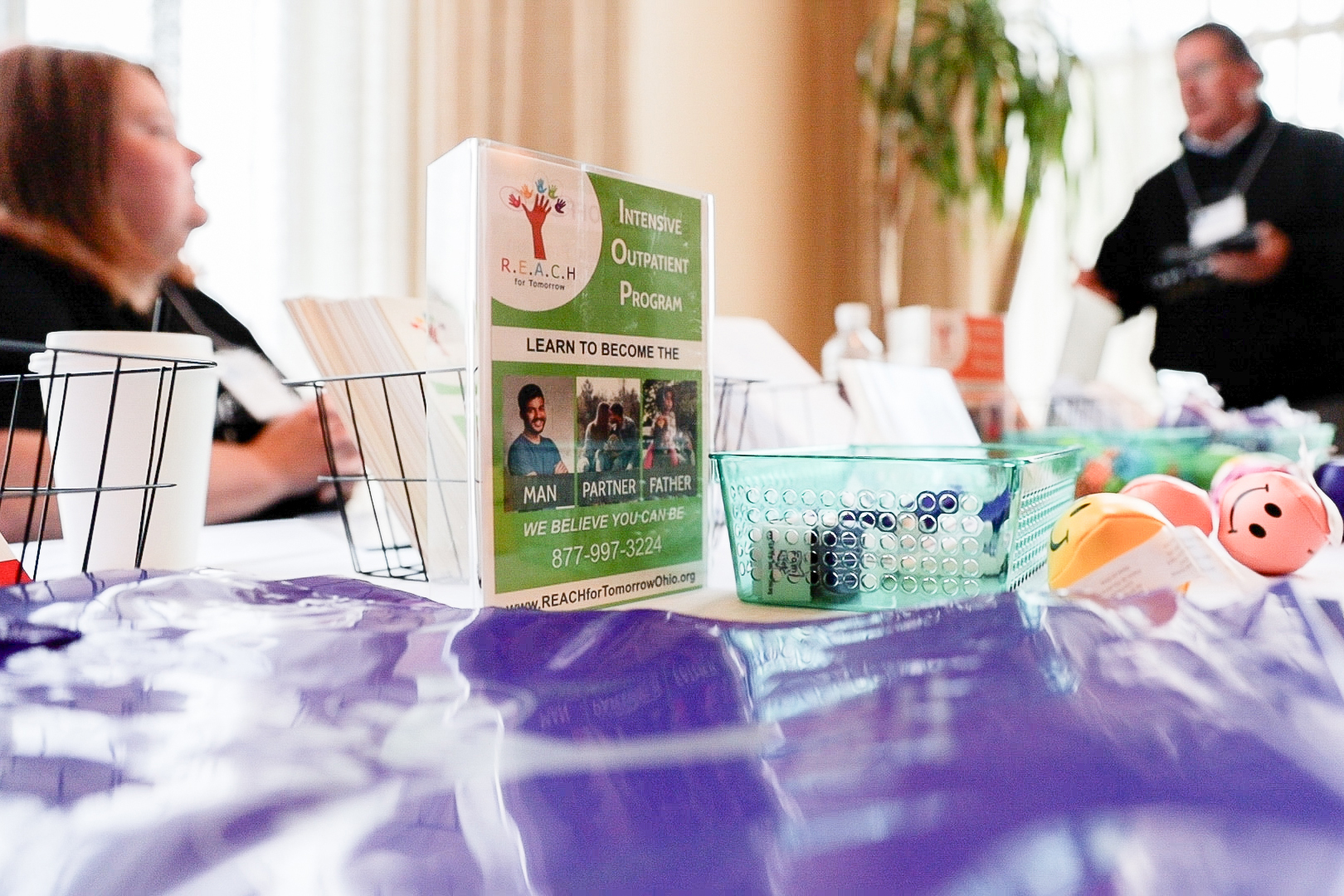
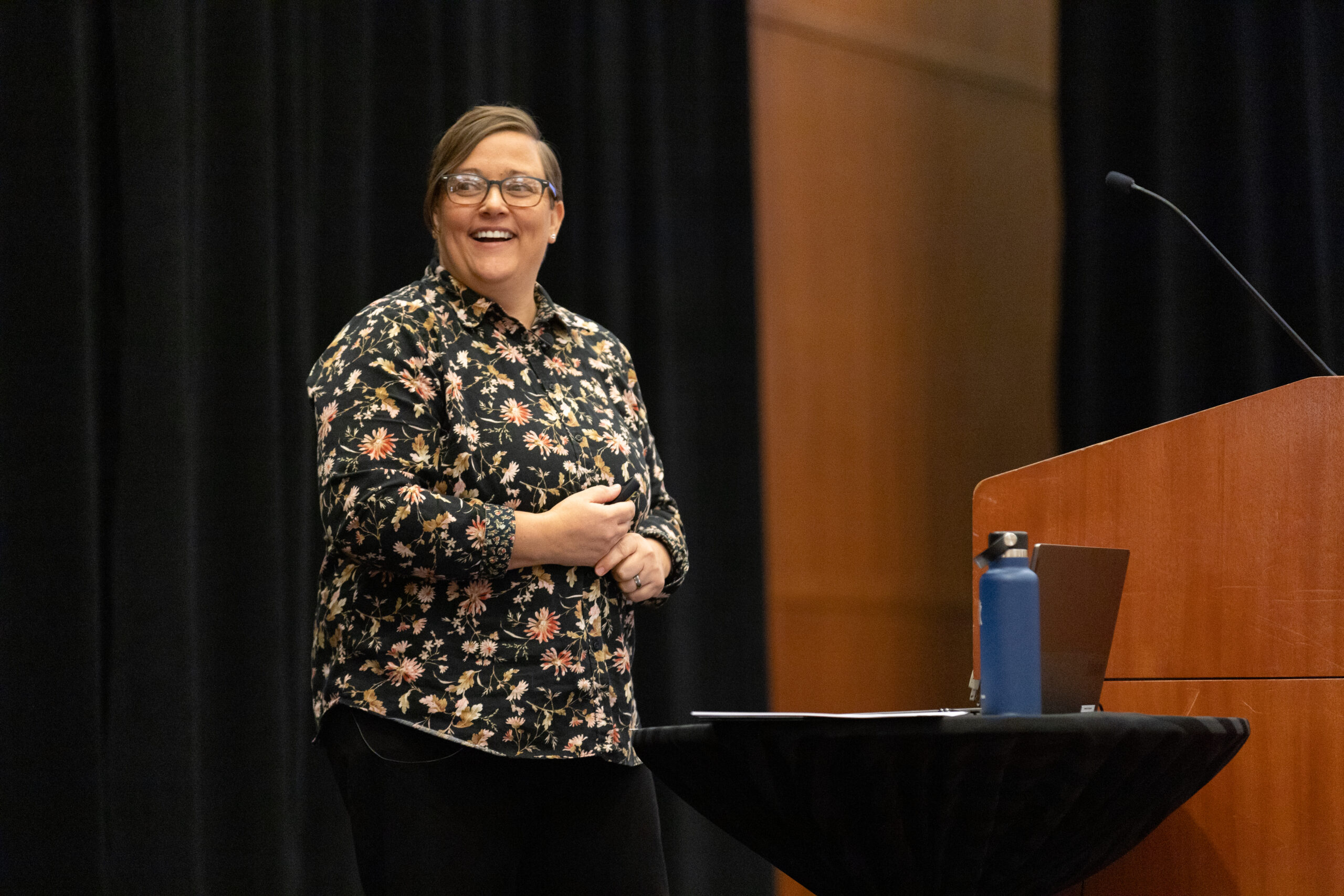
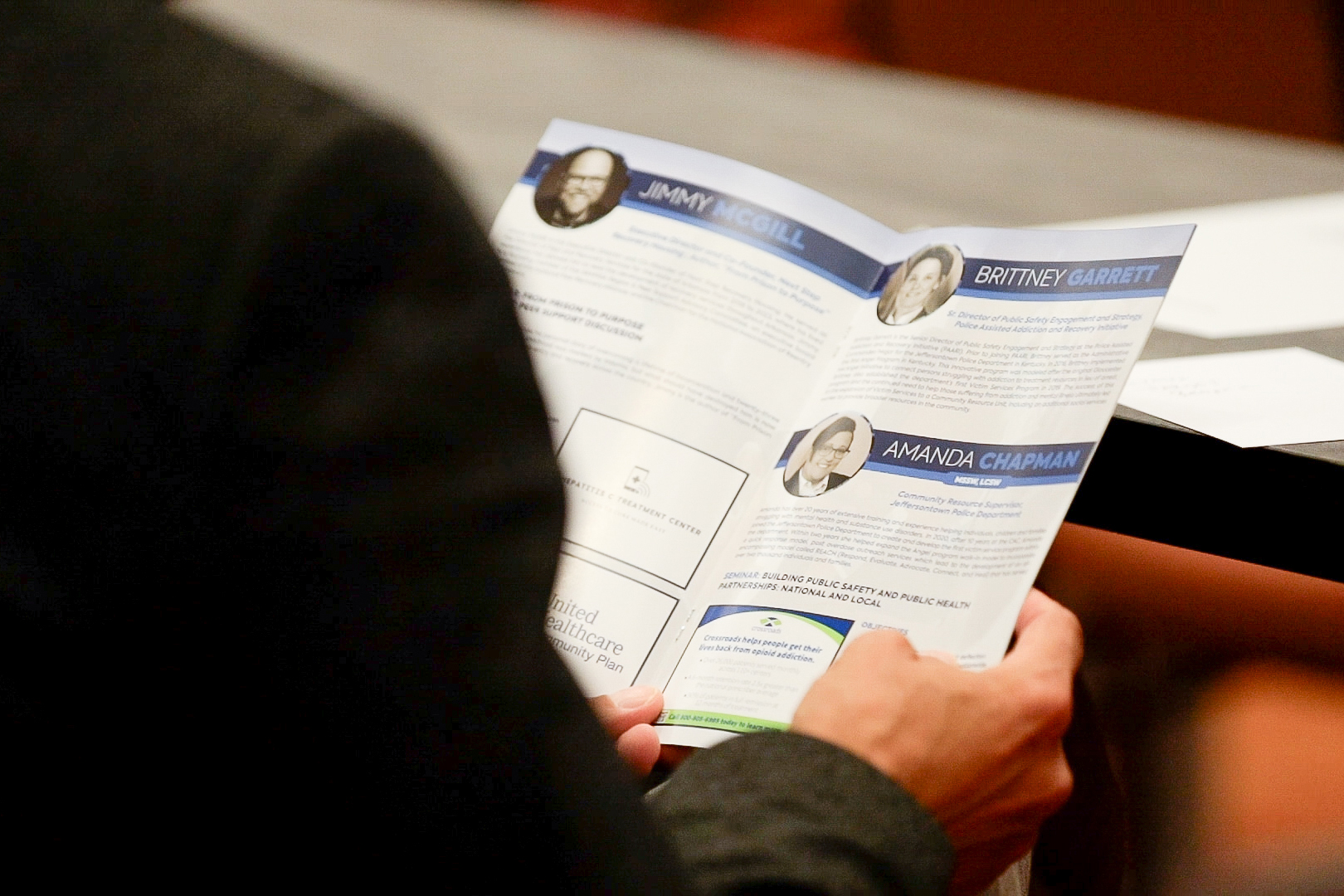
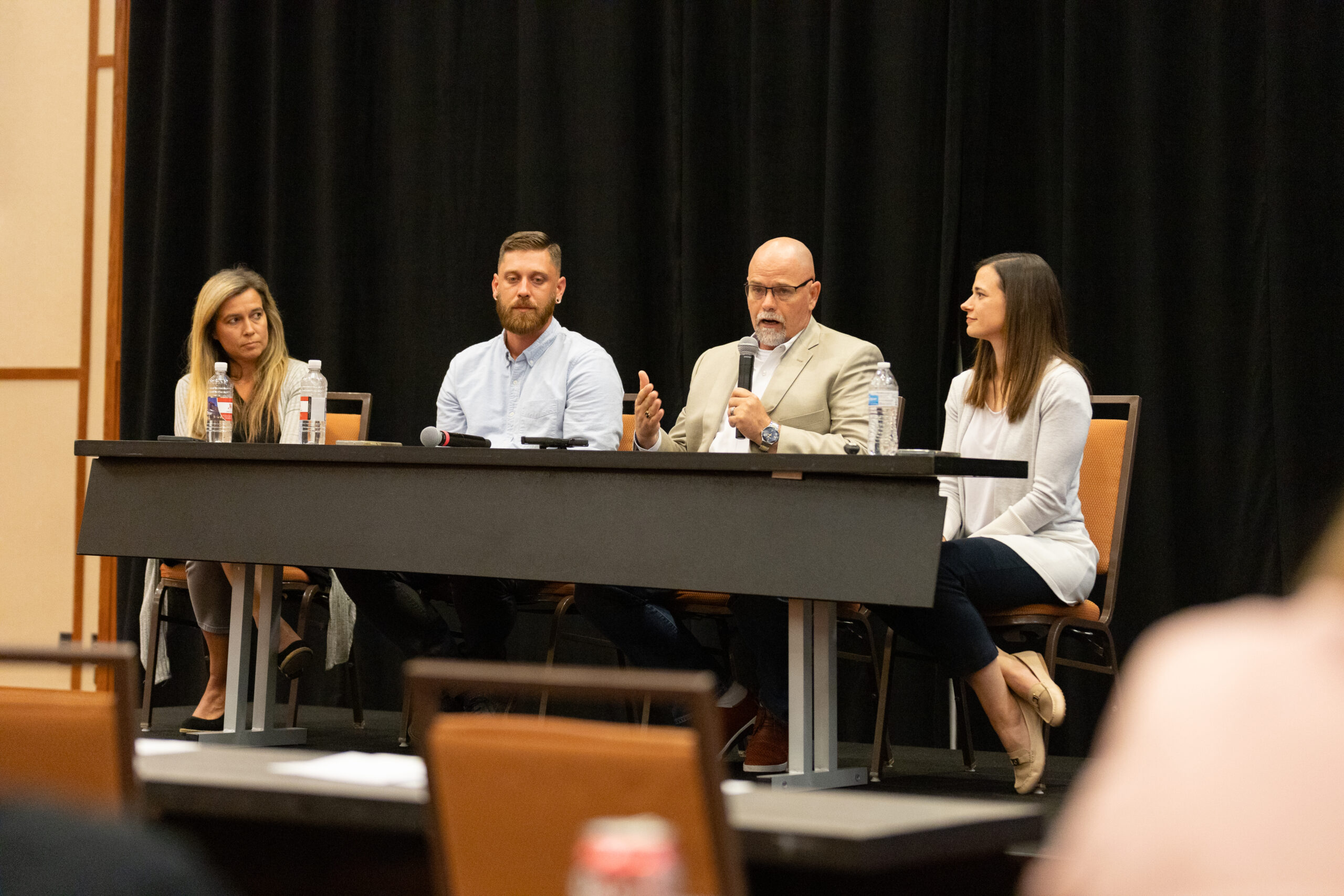

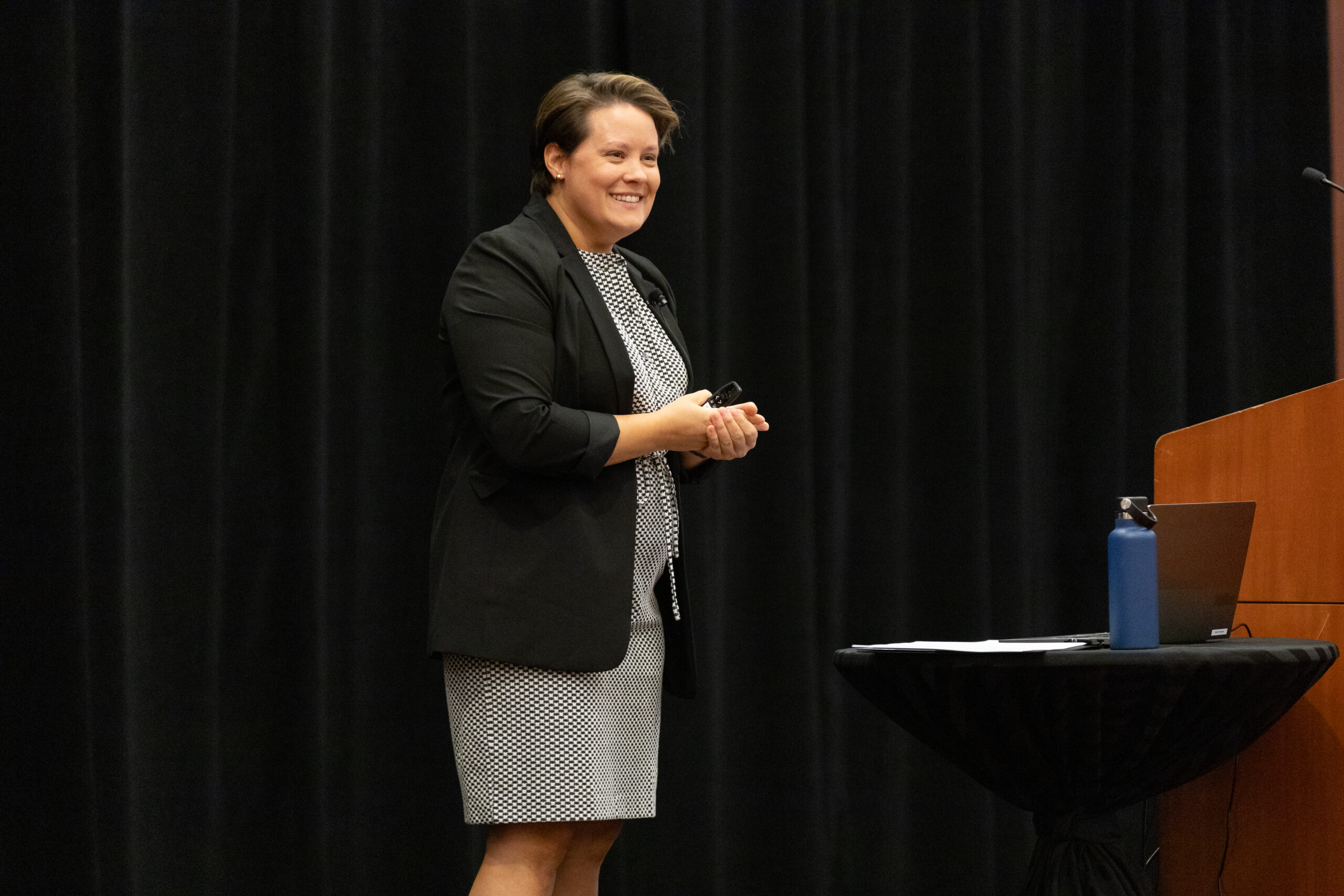
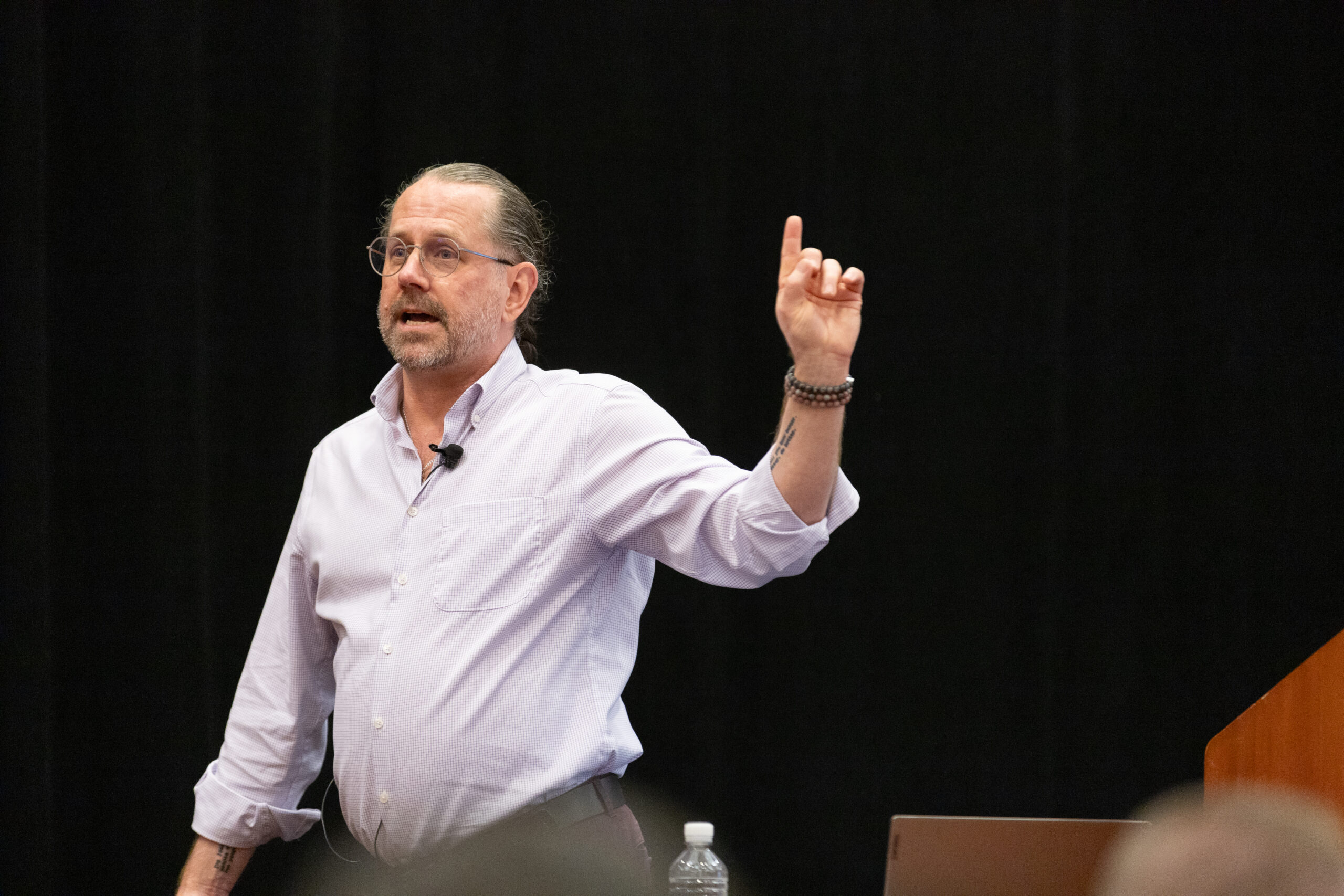
Speaker Bios & Presentations

Faith, Recovery, Connection
Monty Burks, MCJ, PhD, CPRS
Objectives:
- How and why our faith communities need to stay connected.
- The importance of understanding mental and physical wellness as it relates to addiction and mental health.
- Why cultural competency is important in-service delivery.
Objectives:
- How and why our faith communities need to stay connected.
- The importance of understanding mental and physical wellness as it relates to addiction and mental health.
- Why cultural competency is important in-service delivery.
As of 2023: Monty Burks serves as the Deputy Director in the Governor’s Office of Faith-Based and Community Initiatives for the Tennessee Department of Mental Health and Substance Abuse Services, where his role is engaging and connecting Tennessee’s faith communities to the behavioral health care system, with the goal of expanding addiction and mental health support services across the state. He also oversees the Tennessee Lifeline Peer Project, a state program aimed at reducing the stigma associated with people who suffer from addiction and the Tennessee Faith Based Community Coordinators, who seek to help congregations build their capacity to combat addiction and mental health issues in their respective community. Burks earned his master’s degree in criminal justice from Middle Tennessee State University, his Doctorate in theology from Heritage, and wears the honorable badge of Certified Peer Recovery Specialist. Burks has more than 22 years’ experience working with the criminal justice system in various roles, including adjunct criminal justice professor at Motlow State Community College, Criminal Justice Student Research Analyst at Middle Tennessee State University, and Criminal Justice Program coordinator and adjunct professor at Tennessee State University.

What Do We Know and What Are We Learning in the Continuum of Services for Substance Use Services in 2023?
Fred Rottnek, MD, MAHCM
Much has changed in our world since the 1970s, when the first programmatic “War on Drugs’ created federal agencies like the Drug Enforcement Administration, the National Institute on Drug Abuse, and the National Institute on Alcohol Abuse and Alcoholism was founded. We now have overnight delivery, cell phones, and an almost limitless supply of drug for risky use and misuse. The U.S. can no longer curtailer an epidemic solely through interdiction of drug supplies and prohibition of drug use. Instead, the age of fentanyl mandates a broader approach of thought and services to care for those adversely affected by substances while also moving the work upstream. In this interactive session, Dr. Fred Rottnek will lead an interactive session to challenge participants to consider what we know and what we are learning works in today in addressing substance conditions.
Objectives:
- Identify innate factors all of us have that protect us or make us more vulnerable to problematic substance use.
- Describe the spectrum of substance use services: prevention, screening, harm reduction, diagnosis and evaluation, treatment, recovery support, and thriving.
- Recall the medications currently FDA-approved for use in the treatment of substance use disorders.
- Expand ways in which peers can support client and team success in these services.
- Discuss factors associated with thriving and flourishing for individuals who have been impacted by problematic substance use.
Much has changed in our world since the 1970s, when the first programmatic “War on Drugs’ created federal agencies like the Drug Enforcement Administration, the National Institute on Drug Abuse, and the National Institute on Alcohol Abuse and Alcoholism was founded. We now have overnight delivery, cell phones, and an almost limitless supply of drug for risky use and misuse. The U.S. can no longer curtailer an epidemic solely through interdiction of drug supplies and prohibition of drug use. Instead, the age of fentanyl mandates a broader approach of thought and services to care for those adversely affected by substances while also moving the work upstream. In this interactive session, Dr. Fred Rottnek will lead an interactive session to challenge participants to consider what we know and what we are learning works in today in addressing substance conditions.
Objectives:
- Identify innate factors all of us have that protect us or make us more vulnerable to problematic substance use.
- Describe the spectrum of substance use services: prevention, screening, harm reduction, diagnosis and evaluation, treatment, recovery support, and thriving.
- Recall the medications currently FDA-approved for use in the treatment of substance use disorders.
- Expand ways in which peers can support client and team success in these services.
- Discuss factors associated with thriving and flourishing for individuals who have been impacted by problematic substance use.
As of 2023: Dr. Rottnek is a Professor and the Director of Community Medicine at Saint Louis University (SLU) School of Medicine and the Medical Director of the Physician Assistant Program. He is a graduate of the Saint Louis University School of Medicine and the Master of Arts in Health Care Mission Program at Aquinas Institute of Theology. His clinical practices have included correctional healthcare, homeless healthcare, community clinics, and addiction medicine. He teaches in the School of Medicine, the PA Program, Interprofessional Education Program, and the Center for Health Law Studies. Board-Certified in Family Medicine and Addiction Medicine, he is the Medical Director for the Assisted Recovery Centers of American (ARCA). Dr. Rottnek is the Program Director of the Saint Louis University Addiction Medicine Fellowship.

From Prison to Purpose
Jimmy McGill
Jimmy McGill will discuss his personal story of overcoming a lifetime of incarceration and twenty-three years of addiction. His childhood was marked by trauma, but what should have destroyed him is now being used to transform re-entry and recovery across the country. Jimmy is the author of “From Prison to Purpose.”
Objectives:
- Discuss the Model of Peer Recovery.
- Peer Recovery infrastructure and how it can lead to sustained recovery.
Jimmy McGill will discuss his personal story of overcoming a lifetime of incarceration and twenty-three years of addiction. His childhood was marked by trauma, but what should have destroyed him is now being used to transform re-entry and recovery across the country. Jimmy is the author of “From Prison to Purpose.”
Objectives:
- Discuss the Model of Peer Recovery.
- Peer Recovery infrastructure and how it can lead to sustained recovery.
As of 2023: Jimmy McGill is the Executive Director and Co-Founder of Next Step Recovery Housing. He served as the Director of Peer and Recovery Services for the state of Arkansas from 2018 to 2023, where his lived experience has allowed him to lead the development of recovery services throughout Arkansas. Jimmy is a founding member of the SAMHSA Region 6 Peer Support Advisory Committee, an executive board member of the National Peer Recovery Alliance, and the Chairman for the National Association of Reentry Professionals.


Police and Public Health Partnerships
Brittney Garrett & Amanda Chapman, MSSW, LCSW
Objectives:
- Learn more about multiple non-arrest deflection and pre-arrest diversion programs nationwide.
- Understand the development and implementation of the Jefferson Angel Program and the REACH program.
- Identify community stakeholders needed to implement deflection models in your community.
Objectives:
- Learn more about multiple non-arrest deflection and pre-arrest diversion programs nationwide.
- Understand the development and implementation of the Jefferson Angel Program and the REACH program.
- Identify community stakeholders needed to implement deflection models in your community.
As of 2023: Brittney Garrett is the Senior Director of Public Safety Engagement and Strategy at the Police Assisted Addiction and Recovery Initiative (PAARI). Prior to joining PAARI, Brittney served as the Administrative Commander/Major for the Jeffersontown Police Department in Kentucky. In 2016, Brittney implemented the first Angel Program in Kentucky. This innovative program was modeled after the original Gloucester MA Angel Initiative to connect persons struggling with addiction to treatment resources in lieu of arrest. Brittney also established the department’s first Victim Services Program in 2019. The success of this program and the continued need to help those suffering from addiction and mental illness ultimately led to the expansion of Victim Services to a Community Resource Unit, including an additional social services worker to provide broader resources in the community.
As of 2023: Amanda has over 20 years of extensive training and experience helping individuals, children and families struggling with mental health and substance use disorders. In 2020, after 10 years at the CAC, Amanda joined the Jeffersontown Police Department to create and develop the first victim service program within the department. Within two years she helped expand the Angel program walk-in model to incorporate a quick response model, post overdose outreach services which lead to the development of an all-encompassing model called REACH (Respond, Evaluate, Advocate, Connect, and Heal) that has served over two thousand individuals and families.




Peer Support Panel Discussion
Emily Stuckey, Stefanie Robinson, Jimmy McGill, & Brandon Conlin
This NPRA panel will discuss the innovative work being accomplished nationally around peer support as well as what NPRA is doing to raise the bar for recovery.
This NPRA panel will discuss the innovative work being accomplished nationally around peer support as well as what NPRA is doing to raise the bar for recovery.
As of 2023: Emily is the CEO of ARCHway Institute, a 501(c)3 that helps those impacted by substance use and co-occurring mental health disorders. She recently published a book called Igniting Hope: The Story of a Community Lighting the Way to Recovery about ARCHway’s work to bring hope to all those impacted by substance use disorders. In addition, Emily is the founder of two peer coalitions: The National Peer Recovery Alliance (NPRA) and its Missouri affiliate, NPRA-MO. Both coalitions focus on advocacy efforts around long-term recovery and peer workforce development and sustainability.
As of 2023: Stefanie Robinson is the Founding Executive Director of Hope Recovery Community (HRC), a Recovery Community Organization (RCO) in Medina County serving those impacted by addiction. She previously served as the Medina County Coordinator of Recovery Peer Support Services at OhioGuidestone where she started a peer support program, oversaw a Level 3, ORH certified women’s recovery house, managed a weekly quick access MAT program and supervised a peer navigation team. Stefanie also works on special recovery support services projects for Ohio Citizen Advocates for Addiction Recovery (OCAAR) and is the Ohio Affiliate Director for the National Recovery Peer Alliance (NPRA). Stefanie has over 14 years in recovery from drugs and alcohol, mental health and an eating disorder. She has served on the boards for the Ohio Citizen Advocates for Addiction Recovery and Eating Disorder Advocates of Ohio and currently serves on the Advisory Council for the National Peer Recovery Alliance.
As of 2023: Jimmy McGill is the Executive Director and Co-Founder of Next Step Recovery Housing. He served as the Director of Peer and Recovery Services for the state of Arkansas from 2018 to 2023, where his lived experience has allowed him to lead the development of recovery services throughout Arkansas. Jimmy is a founding member of the SAMHSA Region 6 Peer Support Advisory Committee, an executive board member of the National Peer Recovery Alliance, and the Chairman for the National Association of Reentry Professionals.
As of 2023: Brandon Conlin has been a Peer Support Specialist for 5 years. After 12 long years in active addiction, Brandon prides himself on being a person in long-term recovery, with a sobriety date of August 22, 2017. He currently serves as the Director of Peer Support Services at ARC and the Director of the KY-NPRA.

Drifting or Evolving with Integrity?: Addiction Counseling in a Time of Disruption
Jason Schwartz, LMSW, CAADC
Addiction professionals are witnessing a period of enormous disruption and rapid change in the ways we conceptualize drug use, drug problems, how drug problems are resolved, and the proper policy responses. For experienced professionals, the scale, scope, and pace of these changes can be disorienting. New professionals are entering a field where the narratives about its history are being reevaluated, traditions are being questioned, and there is little clarity about the core principles of addiction counseling, creating conditions for drift toward medical and public health approaches. This presentation aims to identify the multidimensional factors driving these changes and examine their implications, both positive and negative. The goal is to assist addiction professionals in determining when to embrace change, when to uphold tradition, and when to develop a third way. By better understanding these factors, professionals can navigate this evolving landscape more effectively.
Objectives:
- Describe at least three factors driving rapid changes in the field of addiction counseling.
- Describe the positive and negative implications of these changes for mild to moderate SUD, and severe SUD.
- Describe at least three historical traditions in addiction counseling that can inform practice and decisions about program design.
Addiction professionals are witnessing a period of enormous disruption and rapid change in the ways we conceptualize drug use, drug problems, how drug problems are resolved, and the proper policy responses. For experienced professionals, the scale, scope, and pace of these changes can be disorienting. New professionals are entering a field where the narratives about its history are being reevaluated, traditions are being questioned, and there is little clarity about the core principles of addiction counseling, creating conditions for drift toward medical and public health approaches. This presentation aims to identify the multidimensional factors driving these changes and examine their implications, both positive and negative. The goal is to assist addiction professionals in determining when to embrace change, when to uphold tradition, and when to develop a third way. By better understanding these factors, professionals can navigate this evolving landscape more effectively.
Objectives:
- Describe at least three factors driving rapid changes in the field of addiction counseling.
- Describe the positive and negative implications of these changes for mild to moderate SUD, and severe SUD.
- Describe at least three historical traditions in addiction counseling that can inform practice and decisions about program design.
As of 2023: Jason Schwartz is an addiction treatment professional and educator. He has helped develop a complete continuum of care and has treatment teams in developing a recovery-oriented treatment model. Jason is experienced in teaching interpersonal practice, professional ethics, and substance use disorder treatment to undergraduate and graduate students. Jason currently works at Michigan Medicine in Ann Arbor, MI as the Director of Social Work and Spiritual Care. There, he leads a department of 280 social workers across ambulatory units in a highly matrixed academic medical system. He also manages the spiritual care department with 20 chaplains, is responsible for the development of budget and management of department finances and works with system leadership on the implementation of system priorities.

Counseling and Clinical Supervision Within a 5-Year Continuing Care System for High Severity, Complexity, and Chronicity SUDs
Brian Coon, MA, LCAS, CCS, MAC
Treatment as usual in the substance use disorder (SUD) clinical arena is very short compared to the presenting needs of patients with high addiction severity, complexity, and chronicity, their length of illness, and the process necessary for the restoration of stable well-being. Studies and descriptions of long-term trajectories of those with severe SUD’s exist, but incorporation of such information in routine clinical practice is not common. Currently the clinical literature lacks a comprehensive synthesis of such information for clinical care of severe SUD’s. This training responds by outlining a 5-year continuing care system for high severity, complexity, and chronicity addiction illness that begins to identify markers and methods applicable to these matters in clinical supervision and patient care.
Objectives:
- Remember the critical time frames of clinical care related to the development of stable recovery.
- Understand the differences in clinical goals during years 0-2 as compared to years 3-5.
- Apply long-term strategies within service delivery and the content of clinical supervision.
- Analyze the response of both the patient and the counselor to chronic disease and disease management at the level of the patient’s personal identity – for possible clinical relevance.
Treatment as usual in the substance use disorder (SUD) clinical arena is very short compared to the presenting needs of patients with high addiction severity, complexity, and chronicity, their length of illness, and the process necessary for the restoration of stable well-being. Studies and descriptions of long-term trajectories of those with severe SUD’s exist, but incorporation of such information in routine clinical practice is not common. Currently the clinical literature lacks a comprehensive synthesis of such information for clinical care of severe SUD’s. This training responds by outlining a 5-year continuing care system for high severity, complexity, and chronicity addiction illness that begins to identify markers and methods applicable to these matters in clinical supervision and patient care.
Objectives:
- Remember the critical time frames of clinical care related to the development of stable recovery.
- Understand the differences in clinical goals during years 0-2 as compared to years 3-5.
- Apply long-term strategies within service delivery and the content of clinical supervision.
- Analyze the response of both the patient and the counselor to chronic disease and disease management at the level of the patient’s personal identity – for possible clinical relevance.
As of 2023: Brian received both his undergraduate degree in psychology and his master’s degree in community- clinical psychology from Bradley University in Peoria, Illinois. He began his full-time clinical work during his graduate internship in 1988. Since that time he has worked in addressing co-occurring substance use and mental health disorders in roles ranging from clinician to clinical supervisor and manager of multiple treatment programs. He is a Licensed Clinical Addictions Specialist, Certified Clinical Supervisor, and nationally credentialed as a Master Addiction Counselor. His clinical background is in cognitive- behavioral psychology and evidence-based treatment of co-occurring disorders in various residential and outpatient modalities and levels of care. Brian is currently the Chief Clinical Officer at Pavillion Addiction Treatment Center in Mill Spring, NC.
